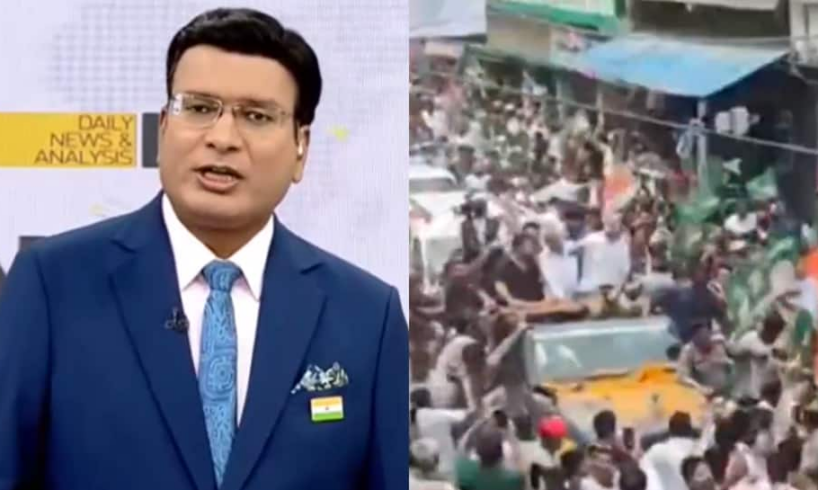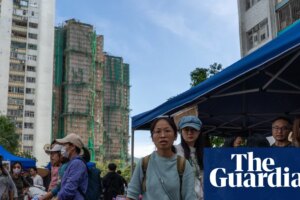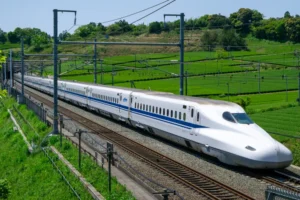
Bihar is gearing up for another kind of political spectacle — the upcoming state assembly elections are being seen as a platform to launch the next generation of political heirs.
Just as tournaments serve to introduce new players in sports, Bihar’s assembly elections are becoming a launchpad for new political entrants, most of whom belong to established political families. In today’s DNA episode, Rahul Sinha, Managing Editor of Zee News, analysed ‘Political Launching League’ in Bihar:
Watch DNA Episode Here:
Add Zee News as a Preferred Source
#DNAWithRahulSinha | ‘बेटा को नेता’ बनाने वाले चुनाव का विश्लेषण…बिहार में 16 नेताओं के बेटे लॉन्च होंगे !
बिहार में पहली बार चुनाव लड़ सकते हैं 16 नेताओं के बच्चे. शहाबुद्दीन के बेटे ओसामा शहाब चुनाव लड़ सकते हैं, आनंद मोहन के बेटे अंशुमान के चुनाव लड़ने की चर्चा, पप्पू यादव… pic.twitter.com/LtXdehAGpL
— Zee News (@ZeeNews) August 25, 2025
Rising Faces in Bihar Politics
A few names already creating buzz on the ground include Osama Shahab, Arijit Shashwat, Anshuman, Sarthak Ranjan, and Abhimanyu.
– Osama Shahab is the son of former MP Shahabuddin.
– Arijit Shashwat is the son of former Union Minister Ashwini Choubey.
– Anshuman is the son of former MP Anand Mohan.
– Sarthak Ranjan is the son of MP Pappu Yadav.
– Abhimanyu is the son of former Union Minister Ram Kripal Yadav.
All of them hail from political families and are reportedly seeking tickets to contest. As the election draws near, the stage for their political debuts is being set.
Members across political parties like RJD, Congress, BJP, and JD(U) are lobbying for their family members to get tickets. Sources suggest that around 16 politicians are preparing to field their children in the upcoming Bihar Assembly elections, potentially making this the biggest wave of dynastic entries in recent years.
A Tradition of Dynastic Politics
The idea of political families is nothing new in Bihar. Leaders like Tejashwi Yadav, Tej Pratap Yadav, Nitish Mishra, Sudhakar Singh, and Shreyasi Singh are already active — all from political dynasties.
According to reports, in the 2020 assembly elections, candidates from 32 political families contested in Bihar.
Dr. B.R. Ambedkar once said that dynastic politics is the biggest enemy of democracy as it suppresses merit and promotes personality and family worship.
Bihar may be just one chapter in what can be called a national “Political Launching League,” with strong dynastic footholds in almost every state.
Political Dynasties Across India
Here are some key political families active across states:
– Jammu and Kashmir: Abdullah and Mufti families
– Haryana: Chautala, Hooda, and Bishnoi families
– Jharkhand: Soren family
– Uttar Pradesh: Mulayam Singh Yadav and Ajit Singh families
– Maharashtra: Thackeray, Sharad Pawar, and Narayan Rane families
– Karnataka: Deve Gowda and Yediyurappa families
– Tamil Nadu: Karunanidhi family
– Andhra Pradesh: N.T. Rama Rao and Y.S. Rajasekhara Reddy families
– Telangana: KCR family
Some of these dynasties, like the Gandhi–Nehru family, have remained active for four generations. Others, like the Chautala and Karunanidhi families, also boast multiple generations in politics.
Reports suggest that 34 powerful political families currently dominate India’s political landscape.
The Broader Implications
In 2024 Lok Sabha elections, around 40 percent of the elected MPs were associated with dynastic politics. Similarly, about 30 percent of the elected MLAs in state assemblies come from political family backgrounds. In other words, 40 out of every 100 MPs and 30 out of every 100 MLAs are those who are carrying forward the legacy of political dynasties.
Merit vs Inheritance
While in other professions — like film, medicine, or law — children of professionals often follow in their parents’ footsteps, the path in politics is different. In the film industry, around 50 percent of stars come from film families.
In politics, however, equations and networks often matters.
What Does This Mean for Democracy?
Reports from United Nations Development Programme (UNDP) and the World Bank caution that dynastic control over politics results in:
– Less transparency in policymaking
– Higher corruption and nepotism
– Long-term concentration of power weakening democratic processes
According to various reports and institutions like the UNDP and the World Bank, strong dynastic politics is often associated with reduced transparency, increased corruption, and weakened democratic institutions. A CSDS report also highlights that regions represented by dynastic leaders often lag behind in development compared to others.





